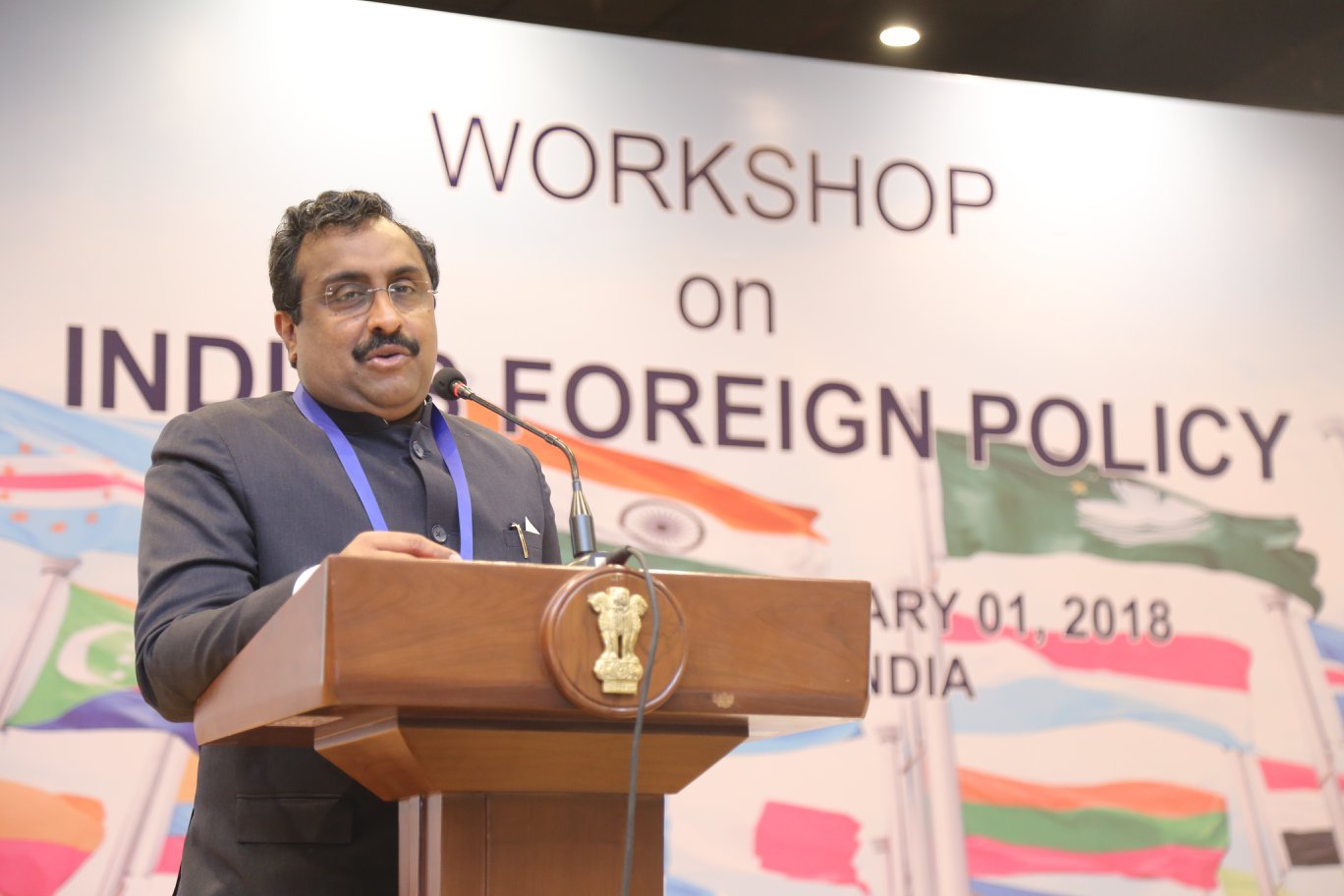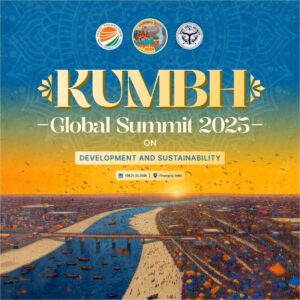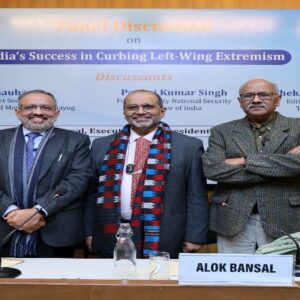India Foundation in association with the Ministry of External Affairs, Government of India conducted a five day ‘Workshop on India’s Foreign Policy’ from 28 January to 01 February 2018 at the Pravasi Bhartiya Kendra, New Delhi. The workshop focused on multiple facets of the history and development of India’s Foreign Policy and was attended by ambassadors, diplomats, academicians, policy experts, enthusiasts and students. Important aspects of India’s foreign policy and the way forward were discussed during the course of the five day workshop through talks, panel discussions and simulation exercises.
Day 1: 28 January 2018
Shri M.J.Akbar, Minister of State for External Affairs, Government of India, gave a historical perspective to India’s foreign policy. He said that India’s foreign policy, as indeed the foreign policy of any country is formulated to keep the nation secure and promote its prosperity. Indian foreign policy has never been interventionist and the defence forces of India have thus only been employed only for the defence of the country. The principle aspiration of emerging India is ‘prosperity’ and for ensuring prosperity, we need security.
The Workshop’s Keynote session on Indian Strategic Thought was addressed by Shri Shakti Sinha, Director, Nehru Memorial Museum and Library. He critiqued the western notion that India would never have been a country if not for the British and pointed out through various examples and anecdotes that nationalism has been an age old concept for India and the nation had a well crafted and clear strategic thought throughout history.
Shri Ram Madhav, Director, India Foundation spoke of ‘Panchamrit,’ as the recent innovation in India’s Foreign Policy. He said that India’s Foreign Policy under the leadership of Shri Narendra Modi was bold, proactive, innovative and ambitious and showed through examples, how these four qualities have manifested in recent policy initiatives taken by the Government of India. He explained the five pillared ‘Panchamrit’ approach of “samriddhi” (shared prosperity), “suraksha” (regional and global security), “samman” (dignity), “samvad” (dialogue), and “sanskriti” (cultural and civilisational links) of India’s new foreign policy.
In the post-lunch panel discussion session with ASEAN Ambassadors, the panellists Ms. Nagma Mallick, High Commissioner of India to Brunei; Shri Jawed Ashraf, High Commissioner of India to Singapore and Shri Pradeep Rawat, Ambassador of India to Indonesia, spoke about India-ASEAN relations and specifically about India’s engagement with the countries they were serving in. The panellists noted that the ‘Indo-Pacific’ significance places ASEAN at the centre and observed that India-ASEAN relations are going forward in a positive direction.
Shri Amar Sinha, former Secretary at the Ministry of External Affairs, Government of India and Shri Sanjaya Baru, Secretary General, FICCI India, spoke on India’s Neighbourhood Policy. Shri Amar Sinha emphasised the redefining of “neighbourhood” to include the Indian Ocean Region and also spoke about India’s good relations with its neighbours. He said that India’s policy in its neighbourhood has been big and brotherly and not ‘big brotherly’. Dr. Baru focused on the economic relations of India with its neighbours.
In the concluding session of the first day of the workshop, Ms. Preeti Saran, Secretary (East), Ministry of External Affairs, Government of India, gave an overview of India-ASEAN relations. She said that hosting the ASEAN leaders at India’s Republic Day parade sends a strong message about the growing India-ASEAN ties.
Day 2: 29 January 2018
Shri Baijayant Jay Panda, Member of Parliament, spoke on “Foreign Policy Begins at Home: Domestic Politics in India”. He touched upon various domestic issues ranging from the need for reforms in India’s Foreign Services to the impact of India’s jump into the top 100 of ‘Ease of Doing Business’ rankings to the impact of increase in FDI. He emphasised the need for India to lead a technology change to solve many of its domestic issues.
The session on “India’s Contemporary Security Challenges” was addressed by Shri Alok Joshi, Chairman, National Technical Research Organisation (NTRO), Government of India and Shri R N Ravi, Chairman, Joint Intelligence Committee, Government of India. Shri Alok Joshi threw light on geopolitical challenges that India has been facing since its independence and also spoke on the rise of radical Islam in the region. Shri R. N. Ravi said that “hope is never a policy and never can be”. He emphasised on the need to be alert on security challenges from the Chinese front.

In the session on “India’s wars and how they shaped our Foreign Policy,” Shri Alok Bansal, Director, India Foundation and Shri Shekhar Sinha, former Commander-in-Chief, Western Naval Command, spoke about history and the effect of India’s wars, including the 1961 Liberation of Goa, Sino-Indian war of 1962, India-Pakistan war of 1971, and Kargil war of 1999 in shaping of India’s foreign policy.

In post-lunch session on “India’s soft power diplomacy”, Shri Vinay Sahasrabuddhe, President, Indian Council for Cultural Relations (ICCR) spoke on the history of soft power. Post World War II, conventional warfare took a backseat. In this backdrop, countries had to rely on economic and cultural relations to further ties. Shri Sahasrabuddhe said that India needs a holistic strategy to fight common misconceptions about India, for which he proposed two solutions. First, India should strive to provide an “Indian experience” to people across the world. Second, India needs a multi-ministry effort to design an effective soft power strategy. For example, he suggested that the Ministry of External Affairs and the Ministry of Culture and Tourism could come up with a plan for an immersive Indian experience for foreign tourists.
The session on ‘Pillars of India’s Soft Power Diplomacy’ was addressed by Shri David Frawley, Director, American Institute of Vedic Studies; Ms. Veena Sikri, former Ambassador of India and Shri Hari Kiran Vadlamani, Founder, Indic Academy.
Next, a simulation foreign policy lab was conducted on international disputes by Shri Aniruddha Rajput from the United Nations International Law Commission. A case study filed by Marshall Islands against the United States at the International Court of Justice (ICJ) was given to the delegates who were divided into various groups comprising stakeholders in the case. It was an interesting experience for the delegates to get a flavour of how international disputes are resolved at the ICJ.

The day’s concluding session was addressed by Shri Hardeep Singh Puri, Minister of State (IC) for Housing and Urban Affairs, Government of India and Shri Kanwal Sibal, former Foreign Secretary, Government of India. They spoke on the topic “From High Ground to High Table” focusing on India and multilateralism.
Day 3: 30 January 2018
The session on “India-Russia Relations” was addressed by Shri P.S. Raghavan, Convener, National Security Advisory Board, Government of India. He said that India and Russia recently celebrated 70 years of bilateral relations. It was the Soviet Union which extended its hands of friendship to India in infrastructural, military, medical and other sectors, just after India’s independence. Back then, Soviet Union also exercised its veto in the UN in India’s favour at crucial moments. He however cautioned that international relations should not be based wholly on nostalgia or gratitude. Hence, India today, needs to look through future frame of lens to evaluate its relations with Russia. India is a strong nation with great relations with U.S and Europe among other countries. Russia has somehow lost its lustre, both politically and economically. Also Russia and China have grown closer. Therefore, threat is looming on an alliance formation between Russia-China-Pakistan and India has to closely keep a tab on it to proceed with its future alliances with Russia.
The session on “India, Central-Asia and Middle East Relations” was addressed by Shri Rajiv Sikri, former Secretary, Ministry of External Affairs. He stressed on India’s historical relations with Central Asia and the Middle East. He gave a brief historical overview of Central Asia, highlighting its takeover by the Soviet Union, the growing Chinese influence, its frozen borders in the Cold War era and the effect of the breakup of the Soviet Union. He added that, technically, India has no direct contact with Central Asia as it has been blocked by Pakistan, thereby making India a bit aloof from the Central Asian politics. However, India’s oil and gas business with Central Asian countries is very strong. Even with the Gulf nations, India had a close history of trade and culture. Two-third of India’s oil comes from the Gulf. The region also houses eight million Indians and UAE is one of India’s top trading partners. The key link in the Middle East is Saudi Arabia. He said that Prime Minister Modi’s and his UAE counterpart’s frequent visits showcase a mutual interest in each other. He also highlighted the importance of Oman as an important trade link. Its sea port is a gateway and also a point of security concern of the neighbourhood. But there has also been a long history of power clash in the region since the Arab Spring. Surrounded by various war states, it has been an inherently troublesome space. Going ahead we have to understand the mutual problems to take these relations to greater heights.
Speaking on “India and Af-Pak Relations,” Shri Vivek Katju, former Secretary, Ministry of External Affairs, Government of India said that India has almost always been a proactive votary of peace in the region. He referred to Atal Bihari Vajpayee’s visit to the Minar-i-Pakistan and how Pakistan has mastered the instrument of terrorism especially through use of proxy organisations. Often, derailing of the peace process with India was attributed to Pakistan. Also, since the rebuilding of Afghanistan has begun, India has played a crucial role there. But India is perpetuated as a threat in Pakistani consciousness. Only time will tell how things pan out between India and Pakistan.
Shri Arun Singh, a former diplomat speaking on “India and West Asia Relations,” dealt with the history of India’s engagement with the West Asian nations of Israel, Palestine and Iran. The secularist nature of India’s nationalist movement and its stance on the creation of Pakistan on the same grounds led India to vote against the motion in the UN calling for creation of the State of Israel in 1948. Attempts at establishing full diplomatic relationship with Israel started following India’s recognition of the Israeli state in 1950. India and Israel share strong cultural ties by virtue of the 80,000 strong Indian-Jews living there, belonging to four distinct Indian Jewish communities. Today, Israel and India share many strategic partnerships in fields such as water technology, agriculture and skill development. When the decision to re-establish diplomatic offices in Kabul following the US invasion and the ensuing freeing of the Taliban from Kabul on 1 November 2001, it was through Iran that the Indian mission members flew into Afghanistan. Iran remains the best way for India to access the strategic region of Central Asia. The challenge today in India-Iran relations is that, as India improves relations with the US, relations with Iran might suffer and this should be navigated carefully by the Indian diplomatic establishment. India began diplomatic ties with Palestine when it set up a representative office in Gaza in 1996. In 2003 it set up its representative office at Ramallah. India has constantly supported them throughout history. Prime Minister Narendra Modi became the first Prime Minister of India to visit Palestine in 2018. The visit was called “Grand Affair” and reaffirmed the ties.
Shri Ashok Kantha, Director Institute for China Studies, and Shri Harsh Pant, Professor of International Relations, King’s College addressed the session on Indo-China. The session on “Indo-EU Relations” was addressed by Mr Rajan Mathai, former Foreign Secretary and Shri Rahul Roy Chaudhary, Senior Fellow for South Asia, IISS, UK. He spoke on Brexit and its implications on India including the way ahead.
The final session of Day 3 was a talk delivered by India’s External Affairs Minister, Smt. Sushma Swaraj. She gave a brief summary of the never-been-done-before occasion of India hosting all ASEAN leaders as guests of honour during India’s Republic Day celebrations. India’s image in the world has started to change. The fastest growing economy has a much stronger international outreach, thanks to the leadership of Prime Minister Modi. She also talked about the changing style of India’s Foreign Ministry. She said the ‘chaal’ (style), ‘charitra’ (character) and ‘chahara’ (face) of the Ministry has completely transformed. Indians abroad now trust that with a single ‘tweet’ they can get the attention of India for any urgent help. This is possible only because Indians are now at the heart of India’s International relation policies.
Day 4: 31 January 2018

Speaking on “India’s Economy: It’s Global Calling Card,” Shri Suresh Prabhu, Minister of Commerce and Industry, Government of India said that foreign policy of any country is geared towards economic interests and the domestic agenda of the country. He spoke of opportunities before India if it were to align its foreign policy to attract more Foreign Institutional Investments (FII) and towards exports. With USA adopting an ‘America First’ policy, the growth of countries like Japan and China, and the slowing down or plateauing of the EU, India is heading into a period of economic prosperity and it must be enabled by a change in its foreign policy.
The session on “Indo-German Ties” was addressed by Dr. Swapan Dasgupta, Member of Parliament in the Rajya Sabha and Dr. Martin Ney, German Ambassador to India. Dr. Martin Ney pointed out the vast variety of fields in which India and Germany are partners including shared values of democracy and rules-based international order, trade ties and security co-operation in the Indian Ocean Region (IOR). He raised his concerns that India views the EU as only a trading partner and not as a political and security policy partner and hoped the relationship would become stronger in the coming years.
Dr. Dattesh Parulekar, Centre for Latin America and International Studies, Goa University spoke on Indo-Latin American ties. He pointed out key events that shaped the history of the economies in Latin America. He said that there is no understanding of India in South America and that the relationship has not achieved its full potential. He hoped that Prime Minister Narendra Modi’s Foreign Policy that ‘no country is left behind’ would be implemented in improving India’s ties with South American nations as well and that, a ministerial level visit from India be undertaken at the earliest.
General V.K.Singh, Minister of State for External Affairs, spoke on the functioning of the Ministry of External Affairs and its attempts to shed its tag of an ‘elitist institution’ to becoming more responsive and accessible to all Indians. India’s heroic conducting of ‘Operation Raahat,’ the airlift mission from Yemen in 2017, was a huge success and was appreciated by the world. He mentioned few issues that the Ministry is working on resolving such as the menace of illegal contracting ‘agencies’ which send migrants to foreign countries through illegal means.
On the ‘Role of the Indian Diaspora,’ Shri Vijay Chauthaiwale, In-Charge, Foreign Affairs Department, Bharatiya Janata Party (BJP) spoke of the success of the Indian diaspora around the world while also classifying the diaspora into four categories — the diaspora in the Gulf, PIOs, NRIs and the floating diaspora. Initiatives of the MEA such as opening an e-migrate portal to ease processes related to immigration and the launching of the Indian Community Welfare Fund for emergency situations are made available to the Indian diaspora. The increased direct interaction of Indian state governments with foreign countries for promoting investment, development and mutual prosperity was stressed.
The day concluded with a Foreign Policy Lab on the role of diplomacy in conflict resolution. Dr. Rajiv Srinivasan, Professor, IIM Bengaluru engaged the participants by offering insights from the world of Mr. Michael Porter’s management strategy theories that are applied in the domain of conflict resolution in the world of diplomacy. The session had the participants engage and debate over a case study.
Day 5: 01 February, 2018
Shri Shaurya Doval, Director, India Foundation addressed the delegates on ‘Indian Economy: Past three years’. Mr. Doval covered various innovative economic reforms brought in by the Modi Government. He cited the ‘Make in India’ initiative as a good example of an innovative approach to simultaneously increase economic output and generate employment. The next big step was the government’s push to make banking available to all of its citizens. He mentioned that around 308 million bank accounts were opened in the last three years, of which 180 million accounts were opened in rural areas.
Shri Dhruva Jaishankar, Fellow, Foreign Policy, Brookings India spoke on “India and Indo-Pacific” where he discussed the growing significance of the Indo-Pacific region in the world, the role of India and its relations with the Indo-Pacific order.
A simulation of a counter terrorism lab was conducted by Maj. Gen. Dhruv C. Katoch and Capt. Alok Bansal, both Directors of India Foundation. The simulation was based on a case of a hostage situation similar to the 26/11 attacks. The delegates were divided into different stakeholders given in the situation and were asked to come up with their plan of action for such a situation. The valedictory address was delivered by Dr. S. Jaishankar, former Foreign Secretary, Government of India on the key aspects and challenges of India’s foreign policy. He covered India’s policy with various regions of the world such as India’s immediate neighbourhood, the Gulf, Central Asia, the Pacific and the Indian Ocean Region. He said that whenever we discuss India’s foreign policy, it is important to keep historical context in mind to better understand current world happenings. Shri Ram Madhav, in his closing speech of the five day workshop stressed on the importance and the need to continue discussions on issues related to India’s foreign policy. In the end, delegates were presented with certificates of completion.
(This article is carried in the print edition of March April 2018 issue of India Foundation Journal.)





